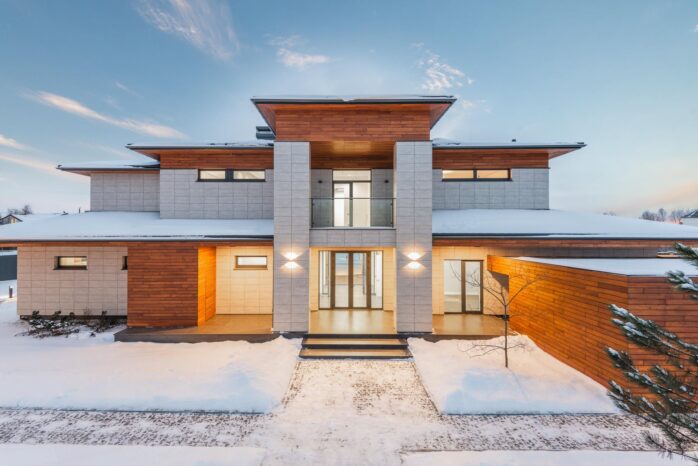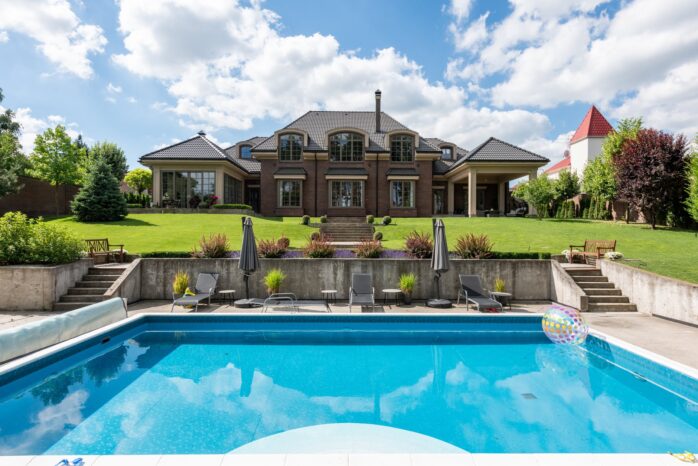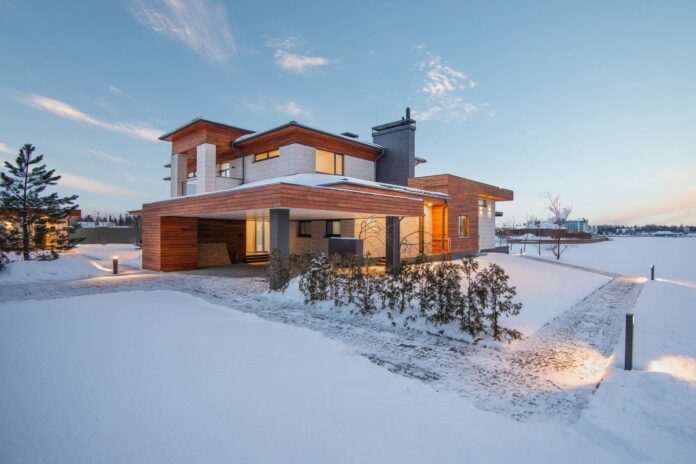The luxury real estate market is a lucrative and competitive industry. With so many new developments in the pipeline, it can be hard to separate what’s worth your time from what will waste your money. This guide covers everything you need to know about investing in luxury real estate – from where to invest, how much to spend on a property, and when is the right time to buy a luxury home?
What qualifies as luxury real estate?

Luxury real estate is a very subjective term, which means that it can mean different things to different people. That being said, there are some notable characteristics that most luxury homes share in common with one another. Luxury properties tend to have many of the following features:
High-end appliances/materials used throughout the home
The materials and finishes chosen for any specific property will tell you much about its value. For example, if granite countertops or hardwood flooring were selected instead of laminate or carpet, this indicates the relative expense of the house’s construction budget.
Moreover, upscale building standards typically require better insulation, tighter construction tolerances between framing members, extensive use of power tools rather than manual labor during build-out, etc.
Quality finishes
Luxury homes are typically designed with top-tier finishing, fixtures, appliances, etc. Kitchens commonly have stainless steel or Travertini countertops and floors rather than laminate. Saturnia Travertini is a manufacturer of Travertini Stones and you can reach out to them for more information.
Master baths may feature dual sinks, custom cabinetry, and marble flooring. Secondary bathrooms might use porcelain tiles, floors, and ceilings instead of carpet/vinyl for flooring surfaces, respectively, finer grade faucets, plumbing fixtures, lighting, etc. Also, front entry doors might be made of solid wood or even clad in copper.
Historical significance
If a home is located on or near historical grounds, it will likely be valued at a higher price point. That’s because of its sentimental value and a potential future appreciation of property values surrounding historical locations (if any).
Luxurious real estate typically has some history behind it. Whether that proves to be advantageous for current homeowners remains to be seen. However, what can not be argued against is this component’s impact upon the final purchase price.
Where to invest in luxury real estate

Luxury real estate is an industry that spans the globe – there are plenty of opportunities to invest in luxury homes worldwide. However, where you choose to buy your new home depends on what investment goals you have and how much risk you’re willing to take on.
If you want a safe but steady return on your investments, look for areas with low crime rates and stable employment prospects outside of tourism (like London).
If increased property values are more important than yield or immediate returns (in order words: appreciation), investing in new developments may be right up your alley.
Additionally, many cities worldwide offer tax incentives and discounts for buyers purchasing properties off-plan, making it even easier to find a luxury real estate investment that aligns with your goals.
If you’re looking to diversify your portfolio and open up new growth opportunities, then luxury real estate investments in emerging markets could be suitable for you.
How Much Should You Expect to Spend on a Property?

The amount of money required to start investing in luxury homes varies depending on the strategy that each investor favors – some choose risky ventures. In contrast, others prefer safe but low-yield investments.
Generally speaking, luxury real estate tends to be on the more expensive side of things.
The price per square foot for new development in London averages at about £980/sqft, while properties in New York City go for around $1000/sqft on average
These are some of the most sought-after locations worldwide, with plenty of opportunities to purchase high-value homes right off-plan.
When is it the Right Time to Invest?

The market isn’t always stable, so there will be times when favoring safety overgrowth makes sense and when you want to take your chances if they promise higher returns than what’s available elsewhere. Generally speaking, though: buying early increases your case of getting great deals but waiting too long can mean missing out entirely.
It is important to remember that the luxury real estate market has lower liquidity than other markets, so it’s harder for investors to get in and out of deals when they need to. If you plan on investing long term, this shouldn’t be an issue – but make sure you have a backup plan if things go south or take longer than anticipated.
The ability to diversify your portfolio is the key to making sure that one underperforming market doesn’t drag down all of your other investments.
It’s also essential for investors to keep in mind how long it takes for projects worldwide to come online to be ready when opportunities arise. If you want a specific unit or location, do your research and get on top of things early!
What Are Some Benefits of Investing in Luxury Estate?

Luxury real estate investment has a lot of benefits to offer. It’s an industry that spans both residential and commercial properties – meaning there are plenty of opportunities for growth in either direction depending on your goals as an investor.
Investing in luxury homes can be very profitable, but keep all the risks involved firmly in mind before getting started. Make sure you have a diversified portfolio, so this risk does not come back to hurt anyone’s particular deal.
Many cities worldwide offer tax incentives that can make it easier to turn a profit when selling luxury homes. This is especially true in France, Turkey, and Portugal, where buyers are given cash back on their purchases.
High-end properties also tend to hold their value better than other types of real estate, so you’re much less likely to find yourself stuck with an investment property after the market goes south.
What Might Be Some Downsides?

High-value investments require investors with deep pockets. Otherwise, they will likely miss out entirely or pay through the nose just trying to get into deals at all if standards aren’t kept high enough from inception. This makes sense since these properties tend to be some of the most expensive in all real estate.
Cities like New York City have a lot going on and can seem exciting, but they also come with even higher prices per square foot than other, more remote locations where luxury developments are less common.
Luxury homes often require a hefty down payment before you’re allowed to purchase them off-plan – this means that there is substantial risk involved if your capital isn’t up to par or your credit doesn’t hold up when it’s time for closing. Make sure you get everything checked out well in advance to know exactly what standards must be met from inception.
Wrap Up
Luxury real estate is a complicated and multi-faceted industry. Many factors go into identifying what luxury housing means to you. Remember to trust your instincts, stay on top of negotiations and details, be courteous during inspections and addendums, and get along with everyone involved in the transaction (including agents).




